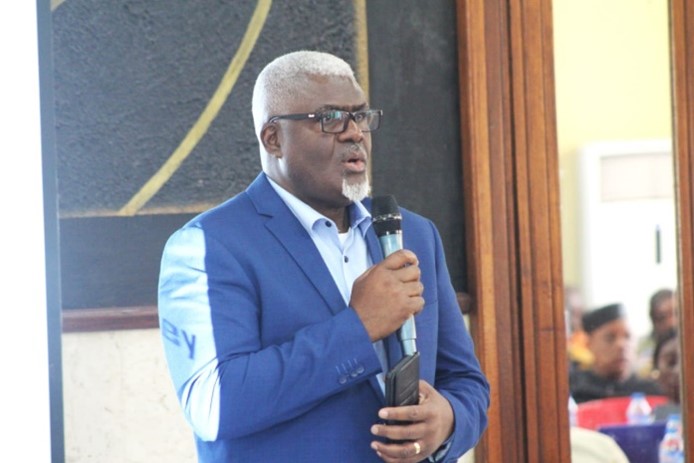In April 2025, Liberia’s Ministry of State for Presidential Affairs, through the Cabinet Secretariat, initiated a two-day intensive technical training program on the Performance Management Compliance System (PMCS) for over 100 focal persons representing various government institutions. This training, held in Monrovia, aimed to bolster effective public service delivery and align institutional performance with the government’s Arrest Agenda for Inclusive Development (AAID). The training equipped participants with the technical skills to finalize SMART (Specific, Measurable, Achievable, Relevant, and Time-bound) performance targets for 2025, ensuring alignment with the AAID, individual institutional mandates, and overarching national priorities.
Mr. Nathaniel T. Kwabo, Director General of the Cabinet, explained that the training specifically targeted individuals designated by their respective institutions to collaborate with the Cabinet Secretariat in implementing the PMCS. This year’s training built upon a similar initiative conducted in 2024, which involved a similar number of participants. While the 2024 training primarily focused on target setting to familiarize participants with the system, this year’s training aimed to expand the scope of target development by linking it directly to the AAID’s specific pillars.
The 2024 training involved setting two primary targets. The first involved the development and publication of service delivery charters, outlining the planned activities of each government entity based on its respective mandate. The second focused on building institutional capacity to effectively implement these service delivery charters. Mr. Kwabo highlighted the evolution of the process, emphasizing that the 2025 training, while still centered on target setting, adopted a more comprehensive approach.
The 2025 target-setting process incorporated a crucial link to the Arrest Agenda for Inclusive Development. Each institution, in addition to adhering to its mandate as outlined in its service delivery charter, was required to set targets that directly contributed to the AAID’s overarching goals and specific pillars. This ensured that institutional efforts were not only aligned with their respective mandates but also contributed to the broader national development agenda. For instance, the Ministry of Health would set targets for the year based on how it would contribute to the AAID, in addition to its core mandate outlined in its service delivery charter. This integrated approach ensured that all government entities worked cohesively toward achieving the national development goals.
The PMCS, endorsed and launched by President Boakai in October 2024, serves as a crucial mechanism for enhancing government service delivery across Liberia. By establishing clear, measurable performance targets linked to the AAID and institutional mandates, the PMCS promotes accountability and transparency in governance. This system provides a framework for monitoring and evaluating the performance of government institutions, ensuring that their activities contribute effectively to national development priorities.
The training program facilitated by the Cabinet Secretariat played a vital role in equipping institutional focal persons with the necessary skills and knowledge to utilize the PMCS effectively. By understanding the intricacies of target setting within the context of the AAID, these individuals could guide their respective institutions in developing and implementing strategies that contribute meaningfully to national development. The training’s focus on practical application and alignment with broader government objectives underscores its significance in strengthening public service delivery and promoting good governance in Liberia.














